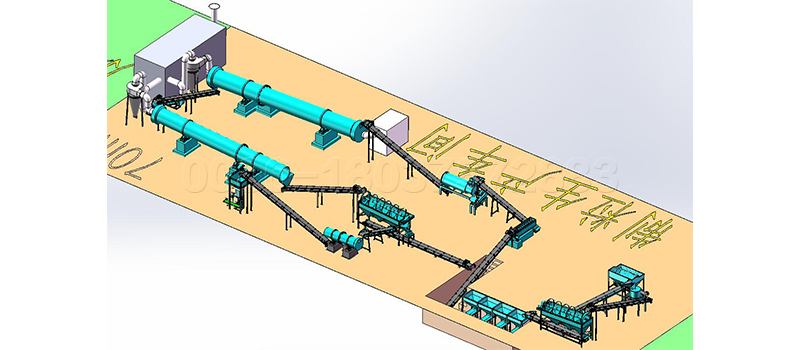1. Determine the type of fertilizer produced. Organic fertilizer is divided into pure organic fertilizer, organic-inorganic compound fertilizer, biological organic fertilizer and microbial compound fertilizer. Different varieties of biological fertilizer, fertilizer production technology and equipment are also different.
2. Selection of fermentation compost Dumper: General fermentation forms include batch fermentation, shallow tank fermentation, deep tank fermentation and tower fermentation. The fermentation equipment is stacked and fermented in different strips due to different compost & fermentation methods.

We have a compost dumper, which is suitable for walking on the ground. For shallow ditch fermentation, we provide simple stacker. Twin screw lathe can be used for deep tank fermentation.
Wide rotation range, large rotation depth and strong operation capacity. It is suitable for large-scale tank fermentation.
3. Determine the production capacity of biological fertilizer production equipment: for example, how many tons of biological fertilizer production equipment can be produced per hour. Determine the production process and finally determine the price through the production capacity of the equipment.
Biological fertilizer production equipment
4. Determine the equipment allocation level of biological fertilizer production: different equipment allocation levels, different equipment prices and different labor costs. High equipment configuration, high automation of biological fertilizer production process, strong production capacity, less manpower and low production cost per unit fertilizer.
5. Determine the shape of biological fertilizer particles: determine the shape of the final product before purchasing the equipment, which is powder, cylindrical, oblate or standard spherical.
The common granulation equipment are: organic fertilizer granulator, disc granulator, drum granulator, double roll extrusion granulator, flat mold granulator and ring mold granulator. The type of granulator shall be selected according to the local fertilizer market. The price varies with the equipment.
6. Determine the main types of organic raw materials: common organic raw materials include chicken manure, pig manure, cow manure, sheep manure, straw, drug residue, furfural residue, humic acid, pond mud, domestic sludge of municipal sewage treatment plant, etc Different materials make different equipment choices.
More detailed info on bio fertilizer production, welcome go to https://organicfertilizerplants.com/bio-organic-fertilizer-production/

